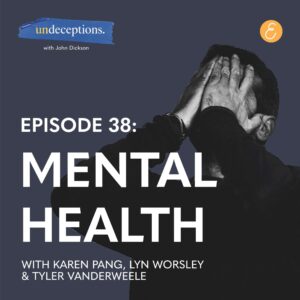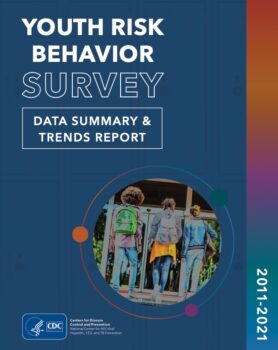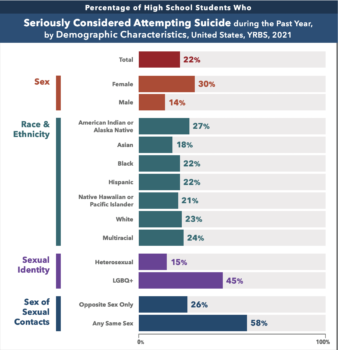A sobering reality check
This week, the US Center for Disease Control (USCDC) released a new report on youth behaviour and mental health, compiled over a ten-year period (2011-2021).
The results were galling.
Overall, sexual violence, suicidal thoughts, suicidal behaviour, and other mental health setbacks are affecting more and more teenagers, regardless of race, ethnicity, and socio-economic background.
In 30 years of collecting similar data, “we’ve never seen this kind of devastating, consistent findings,” said Kathleen Ethier, director of CDC’s adolescent and school health division, speaking to PBS.
“There’s no question young people are telling us they are in crisis. The data really calls on us to act.”
Key findings included;
- Among girls, 30 per cent said they seriously considered attempting suicide, double the rate among boys and up almost 60 per cent from a decade ago.
- Feelings of persistent sadness and hopelessness affected more than one-third of children of all races and ethnicities and increased over previous years.
- Online schooling, reliance on social media during the pandemic, and general feelings of isolation have increased for all youth.
What’s religion got to do with any of this?
A common accusation of organised religion – including evangelical churches – is that it has overall been detrimental to mental health. Puritanical approaches to culture and life, stigmatization of issues such as sexual identity, domestic violence, and, of course, mental health and spiritual well-being, have led to a broad consensus that places like the church pose more challenges than benefits when it comes to psychological well-being.
Indeed, mental health charity Kintsugi Hope surveyed 1,079 Christians in the UK from a variety of backgrounds in 2022 and found that 43 per cent had experienced a mental health issue, significantly higher than the national average of 25 per cent. Of those, only 35 per cent said their church community had been particularly supportive, but sadly, 91 per cent said mental health remains stigmatised in church, with more than half saying their church rarely or never spoke about it.
However, there is a glimmer of hope and – in light of this recent report – a clear call to action for all churches. Recent studies have shown that attending church regularly is good for mental well-being in the long term.
In 2020 Tyler VanderWeele, Professor in Epidemiology in the Departments of Epidemiology and Biostatistics at the Harvard T.H. Chan School of Public Health was part of a team that published a paper looking at the relationship between religious service attendance and deaths related to drugs, alcohol and suicide, in JAMA Psychiatry. It found: “those who attended religious services regularly were at considerably reduced risk for these deaths of despair”.
“Deaths of despair is a term coined … to refer to the phenomena where we’ve been observing, at least in the United States, increasing deaths due to suicide, alcohol poisoning, and drug overdoses”, Professor VanderWeele said, speaking on the Undeceptions podcast in 2021.
“Amongst women in this study, those attending church regularly had about a 66 per cent reduction in these deaths of despair. And with the men in the study, the effect was somewhat smaller but still very meaningful. It was about a 33 per cent reduction in the likelihood of deaths of despair over about a 20-year period.
“(Furthermore) those who attend regularly seem to be at about a 30 per cent reduced risk of depression over time, and likewise, those who attend regularly, who are depressed, are more likely to recover from depression.”
Professor VanderWeele’s studies aren’t just a phenomenon observed in the US.
The ‘Oxford Handbook of Religion and Health’ provides a comprehensive meta-analysis of all published studies on the association between religious involvement and medical and mental health. Its findings are both astonishing and challenging. Some key takeaways include;
- 78% of more than 300 studies report a positive association between religiosity and well-being.
- 73% of 40 studies report a positive association between religiosity and hope.
- 81% of 32 studies report a positive association between religiosity and optimism.
- 93% of 45 studies report a positive association between religiosity and one sense of purpose and meaning.
- 82% of 74 studies report a positive association between religiosity and one’s sense of social support.
- 61% of 413 studies report lower rates of depression or faster recovery from depression in religious individuals.
- 75% of 141 studies report that religiosity is associated with less suicidal ideation, fewer suicide attempts, or fewer completed suicides.

Statistics are pointing in one direction – church attendance is good for you. Picture: Cru
What do we do with these statistics?
Speaking on the Undeceptions podcast, John Dickson notes that, while there’s no quick fix to be found in the Bible, there is a real and urgent application that can be taken; walking with Christians in fellowship is invaluable to enduring seasons of darkness.
“Christianity doesn’t offer a fix to every ailment,” he cautioned.
“In fact, the New Testament speaks of our groaning in this world. It goes on to say that the world itself is groaning.
“The better way of thinking about all of this is that biblical faith sustains us in a real and profound way. It tells us there’s more, there’s another perspective that can anchor our lives when we feel at sea.”
Attending church regularly will by no means provide a “magic bullet” fix for people experiencing short or long-term mental health challenges.
However, it is undeniable that attending church can help people navigate life’s challenges – even if the institutional church is working through its own chequered history of providing support to those in need.
“The prevailing idea for many is that religion is bad for you, but the evidence just doesn’t support that. It strongly points in the other direction,” John Dickson said.
“There is strong evidence now of an association between attending religious services and happiness and life satisfaction. Those who attend religious services find a greater sense of meaning and purpose. They’re more likely to have social support and they have stronger coping mechanisms.”
Reports like the USCDC paper leave us feeling helpless; however, the evidence is increasingly showing that churches are spaces that can provide crucial care and support for those in need.
We should be going to, and helping others attend church more – not less.
This should spurn us to action and give us hope, in equal measure.
By Alasdair Belling, adapted from the Undeceptions episode ‘Mental Health‘

Want to be further undeceived?
Check out our network of podcasts and articles in the Undeceptions Library.













































